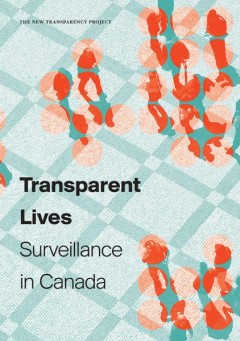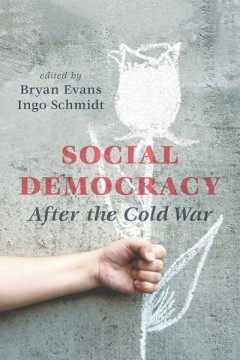Filter by

After Integration: Islam, Conviviality and Contentious Politics in Europe
The integration of Muslims into European societies is often seen as a major challenge that is yet to be confronted. This book, by contrast, starts from the observation that on legal, political and organizational levels integration has already taken place. It showcases the variety of theoretical approaches that scholars have developed to conceptualize Muslim life in Europe, and provides detailed…
- Edition
- Ed. 1
- ISBN/ISSN
- 978-3-658-02594-6
- Collation
- XV, 325
- Series Title
- Islam und Politik
- Call Number
- 320 AFT a

World Bolshevism
Following Martov’s untimely death in 1923, a Russian-language edition of one of his books, World Bolshevism, was published. But it was only in 2000, after decades of extreme censorship, that parts of the book were legally published in Russia. In English, this work has reached the public in pieces, often as a part of pamphlets with limited circulation. This edition, which includes an introduct…
- Edition
- -
- ISBN/ISSN
- 9781771992732.01
- Collation
- -
- Series Title
- -
- Call Number
- 194 pages

Vivre à nu La surveillance au Canada
Vivre à nu est l’œuvre d’une équipe de recherche multidisciplinaire et explique comment la surveillance s’accroît – pratiquement sans que personne y porte attention – dans toutes les sphères de notre vie. En analysant les principaux moyens employés par le secteur public et le secteur privé pour recueillir, faire le suivi, analyser et échanger des renseignements au sujet des ci…
- Edition
- -
- ISBN/ISSN
- 9781927356838.01
- Collation
- -
- Series Title
- -
- Call Number
- 287 pages

Under Siege The Independent Labour Party in Interwar Britain
Despite this reversal of fortunes, during the 1930s—years that witnessed the ascendancy of both Stalin and Hitler—the ILP demonstrated an unswerving commitment to democratic socialist thinking. Drawing extensively on the ILP’s Labour Leader and other contemporary left-wing newspapers, as well as on ILP publications and internal party documents, Bullock examines the debates and ideological…
- Edition
- -
- ISBN/ISSN
- 9781771991551.01
- Collation
- -
- Series Title
- -
- Call Number
- 6 x 9, 430 pages

Truth Behind Bars” Reflections on the Fate of the Russian Revolution
Paul Kellogg uses the story of Vorkuta as a frame with which to re-assess the Russian Revolution. In particular, he turns to the contributions of Iulii Martov, a contemporary of Lenin, and his analysis of the central role played in the revolution by a temporary class of peasants-in-uniform. Kellogg explores the persistence and creativity of workers’ resistance in even the darkest hours of aut…
- Edition
- -
- ISBN/ISSN
- 9781771992459.01
- Collation
- -
- Series Title
- -
- Call Number
- 6x9, 440 pages

Trust and Legitimacy in Criminal Justice European Perspectives
The book explores police legitimacy and crime control, with a focus on the European region. Using comparative case studies, the contributions to this timely volume examine the effects of a transition to democracy on policing, public attitudes towards police legitimacy, and the ways in which perceptions of police legitimacy relate to compliance with the law. Following these case studies, the …
- Edition
- -
- ISBN/ISSN
- 978-3-319-09813-5
- Collation
- 31 b/w illustrations, 8 illustrations in colour
- Series Title
- -
- Call Number
- -

The Emergence of Israeli-Greek Cooperation
This book offers a detailed account of the recent Israeli-Greek rapprochement. For more than six decades, relations between Greece and Israel were characterized by suspicion, mutual recriminations and hostility. However, in 2009, Greek policy was unexpectedly overturned. This volume examines this new relationship in detail and explores its theoretical and regional consequences. The Introduction…
- Edition
- -
- ISBN/ISSN
- 978-3-319-12604-3
- Collation
- XIV, 186
- Series Title
- -
- Call Number
- -

Transparent Lives Surveillance in Canada
The work of a multidisciplinary research team, Transparent Lives explains why and how surveillance is expanding—mostly unchecked—into every facet of our lives. Through an investigation of the major ways in which both government and private sector organizations gather, monitor, analyze, and share information about ordinary citizens, the volume identifies nine key trends in the processing of …
- Edition
- -
- ISBN/ISSN
- 9781927356777.01
- Collation
- -
- Series Title
- -
- Call Number
- 251 pages

Speaking Power to Truth Digital Discourse and the Public Intellectual
Casting doubt on the assertion that online discourse, with its proliferation of voices, will somehow yield collective wisdom, Speaking Power to Truth raises concerns that this wealth of digitally enabled commentary is, in fact, too often bereft of the hallmarks of intellectual discourse: an epistemological framework and the provision of evidence to substantiate claims. Instead, the pursuit of t…
- Edition
- -
- ISBN/ISSN
- 9781771990332.01
- Collation
- -
- Series Title
- -
- Call Number
- 216 pages

Social Democracy After the Cold War
Offering a comparative look at social democratic experience since the Cold War, the volume examines countries where social democracy has long been an influential political force—Sweden, Germany, Britain, and Australia—while also considering the history of Canada’s NDP and the emergence of New Left parties in Germany and the province of Québec. The case studies point to a social democracy…
- Edition
- -
- ISBN/ISSN
- 9781926836874.01
- Collation
- -
- Series Title
- -
- Call Number
- 340 pages
 Computer Science, Information & General Works
Computer Science, Information & General Works  Philosophy & Psychology
Philosophy & Psychology  Religion
Religion  Social Sciences
Social Sciences  Language
Language  Pure Science
Pure Science  Applied Sciences
Applied Sciences  Art & Recreation
Art & Recreation  Literature
Literature  History & Geography
History & Geography